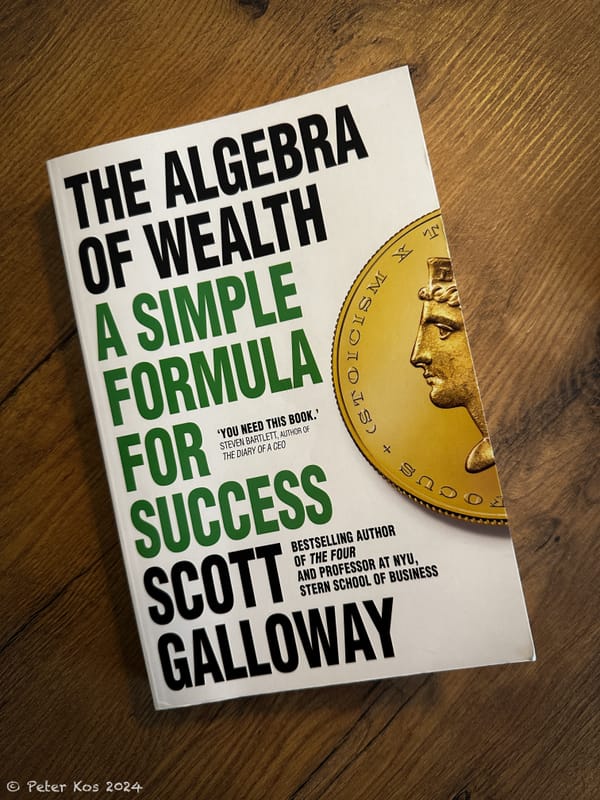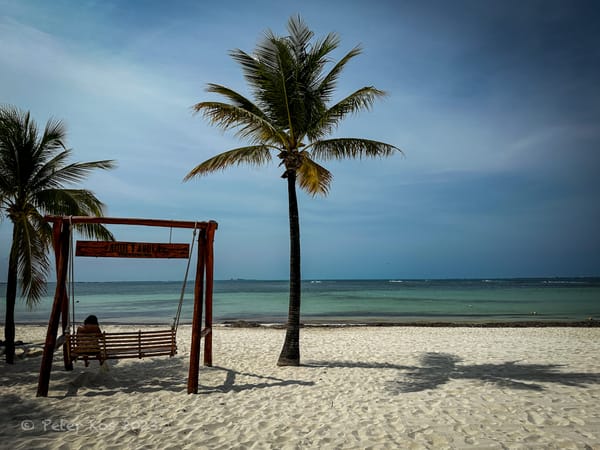The Quest of the Simple Life by William J. Dawson

This is a wonderful book if you're looking to simplify your life. Written at the beginning of the previous century, you might find it dated, but I enjoyed following the author's path towards living a simpler life. He wanted to escape busy London and his daily grind, and while that's not something I'm looking to pursue, I did find his views of fellow humans, wealth, and philosophy refreshing.
If Mr. Dawson would be living today, he'd sure be fit to start a movement. With all the remote-work-porn spreading on the interwebs, this book might just as well be published last year.
Highly recommended!

The Quest of the Simple Life by William J. Dawson
Book highlights:
He had never read a book in his life; his mind subsisted wholly upon the halfpenny newspapers.
The man seemed so satisfied with everything about his life that it was a kind of joy to meet him.
love to imagine myself wealthy, and I flatter myself—as most poor men do—that I am a person peculiarly fitted by nature to afford a conspicuous example of how wealth should be employed.
It is the pursuit of wealth, rather than wealth itself, that is their pleasure.
It would seem that the anxieties of getting money only beget the more torturing anxiety of how to keep it.
but there is one thing I would never do, I would never undertake that laborious quest of wealth, which robs men of the power to enjoy it when it is obtained.
is it worth while to destroy the power of living in attaining the means to live?
He will come back to his residence, night after night, a tired man;
I say he returns to his residence; I scorn to say his home, for the house he rents is merely the barrack where he sleeps.
but suburbanism is a miserable compromise, which like most compromises combines not the qualities but the defects of two antagonisms.
Plainly the man was happy because his work engaged his whole attention; and to every cunning rivet that he fashioned he gave the entire forces of his mind.
I saw that it was the artificial needs of life that made me a slave; the real needs of life were few.
Satisfaction is the death of progress,
They were my temporary cloisters, where I received the sacrament of silence; the woodland sanctuaries where my spirit was renewed.
I never saw the members of the household engaged in any labour that was not also a pleasure.
No one hurried over it, for there was ample time for every duty of the day.
In the city I lived to work; here I worked to live.
The sports of the civilised man are means of life to the natural man.
but I am better satisfied if I can buy health and a meal at the same time and for the same price. This is practically what is done every day by men who live in the country.
Opinion must become conviction before it has any potency to change the ordering of life.
did not wish to be a farmer. What I wished was to live in the country in some modest way that answered to my needs;
to earn by some form of exertion a small income; and at the most, to grow my own vegetables, catch my own fish, and snare my own rabbits.
the beauty which is found in true simplicity.
I am quite sure that this man thought a great deal more of his work than of the money he earned by it.
the true ideal is that every man shall be efficient for his own needs, with as little dependence as possible on others.
Such was the life we lived. If we looked back at all to the life we had left, it was with that sort of sick horror which a prisoner may feel who has endured and survived a long term of imprisonment.
This mere fulness of health was in itself ample compensation for the loss of a hundred artificial pleasures which we had once thought necessary to existence.
Hence a new kind of neighbourship is possible, wider and more catholic than the neighbourship between man and man. Kinship, not in kindred, but in universal life, becomes possible. There is no sense of loneliness in a country life after that discovery is made. The emptiest field is as populous as the thronged city.
The habit of shutting up his body within walls, has produced the corresponding habit of shutting up his mind within walls.
You have simply gone out of the world to escape the evil of the world.
It seems as though if he be right in his mode of life I must be wrong in mine; and yet may we not both be right?
because progress is not a collective movement, but the movement of great individuals who drag the race after them.
objects which give men pleasure may be so diverse that what is a source of joy to one man may be an equal source of misery to another.
The chief discovery which I have made is that man may lead a perfectly honourable, sufficing, and even joyous existence upon a very small income.
Money plays a part in human existence much less important than we suppose. The best boon that money can bestow upon us is independence.
The first step toward independence is the limitation of our wants.
I did not go into the country with the intention of deriving my livelihood from the soil. My sources of income were separate from my mode of life;
May we not also hope that the general application of electric force will do much to cleanse our atmosphere?





